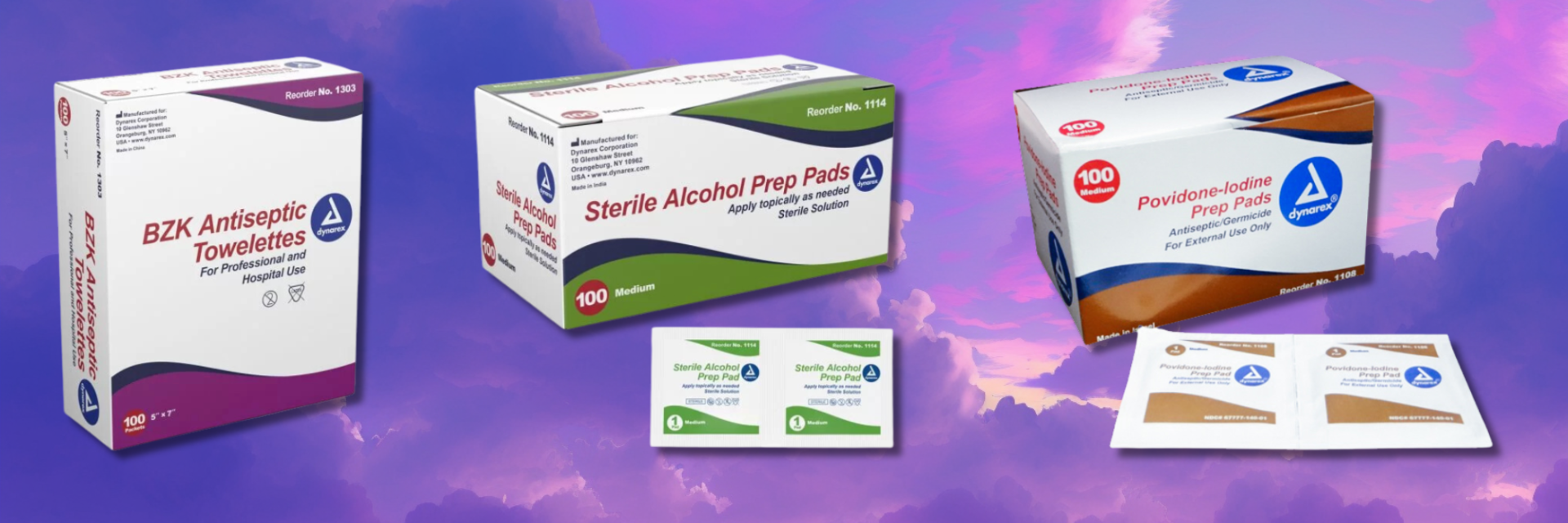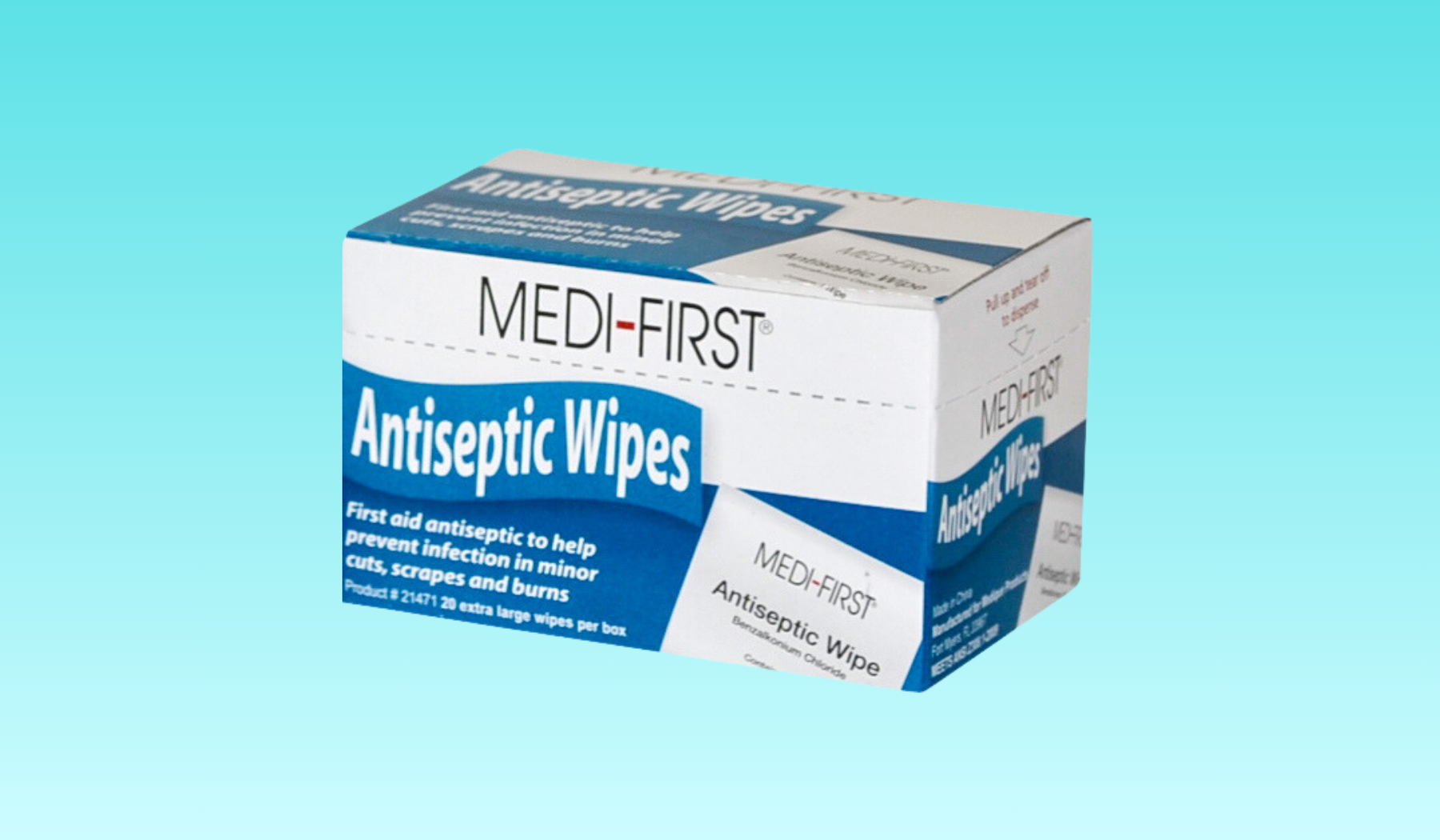Antiseptic wound wipes are some of the most common and convenient ways to sterilize wounds on the skin. Packed into individual packets and designed for single use, these wipes effectively sanitize wounds without the risk of cross-contamination, making them an essential addition to any first aid kit.
Common Uses of Antiseptic Wound Wipes
Antiseptic wipes are designated as “rubs” by the FDA. Unlike “washes” such as hand soap and body wash, rubs are left on the skin and are not washed off with water.
Antiseptic wipes are primarily used for sterilization. Soaked in a disinfectant solution like iodine or alcohol, these wipes effectively kill most germs. They work well on any surface that needs sterilization, whether it’s skin or medical tools.
These wipes are also used to clean wounds, aid in catheter procedures, and prepare the skin for surgery. However, not all antiseptic wipes are the same; some may be good for catheter preparation, yet should be avoided for cleaning wounds. If you find yourself confused or unsure, consult with your healthcare practitioner to ensure safe and hygienic product use.
For more information on antiseptic “rubs” and “washes”, take a look at this article from the FDA discussing the different kinds of antiseptic products and how these products are evaluated.

What Are the Different Types of Antiseptic Wipes?
BZK Towelettes
Benzalkonium chloride (BZK) towelettes are general-purpose antiseptic cleaners. In hospitals, these towelettes are typically used to prepare the skin before using a catheter. At the same time, since they contain zero alcohol, these wipes are great at disinfecting wounds without irritating or drying out the skin. BZK wipes are especially effective against fungi, viruses, bacteria, and protozoa. These mess and sting-free wipes are ideal for use on tender skin.
Alcohol Prep Pads
Alcohol prep pads are used to clean the area surrounding wounds and prepare unbroken skin for catheter use. They also work great in disinfecting medical equipment such as scissors and thermometers. Beyond their medical uses, these pads are highly effective in removing ink from fabrics and can help ignite a fire in emergencies.
Alcohol pads should not be applied directly onto open wounds, as direct contact with wounds can cause unnecessary damage and irritation. This can also delay the wound’s healing process.
Iodine Prep Pads
Povidone-iodine prep pads are frequently used as a topical disinfectant and sterilizer. They contain an iodine solution that causes little-to-no irritation or stinging when applied to open wounds, making them an effective wound-treating solution.
However, iodine pads can be rather messy and therefore difficult to use with catheters. On top of this, while iodine is not officially an allergen, it can mix with other medications or solutions to cause unpleasant and sometimes serious reactions. Before using iodine pads, one should check to see if a reaction will occur by performing a patch test, where a small patch of iodine is applied to the skin and is checked 24 hours later.
Antiseptic wipes are a crucial part of any first aid kit, offering a quick and convenient clean-up for wounds and medical treatment. But first aid kits need more than just wipes to be effective. To learn more about the essential items in a first aid kit, take a look at our overview of first aid kit basics.
We at PackagingSuppliesByMail offer a wide selection of medical supplies, including antiseptic wipes, burn care products, bandages, first aid kits, and more. And to sweeten the deal, we offer free shipping on orders of medical supplies exceeding $150. So if getting cuts, scraps, and wounds is inevitable, prepare for the inevitable with an order of antiseptic wipes.





Sign In